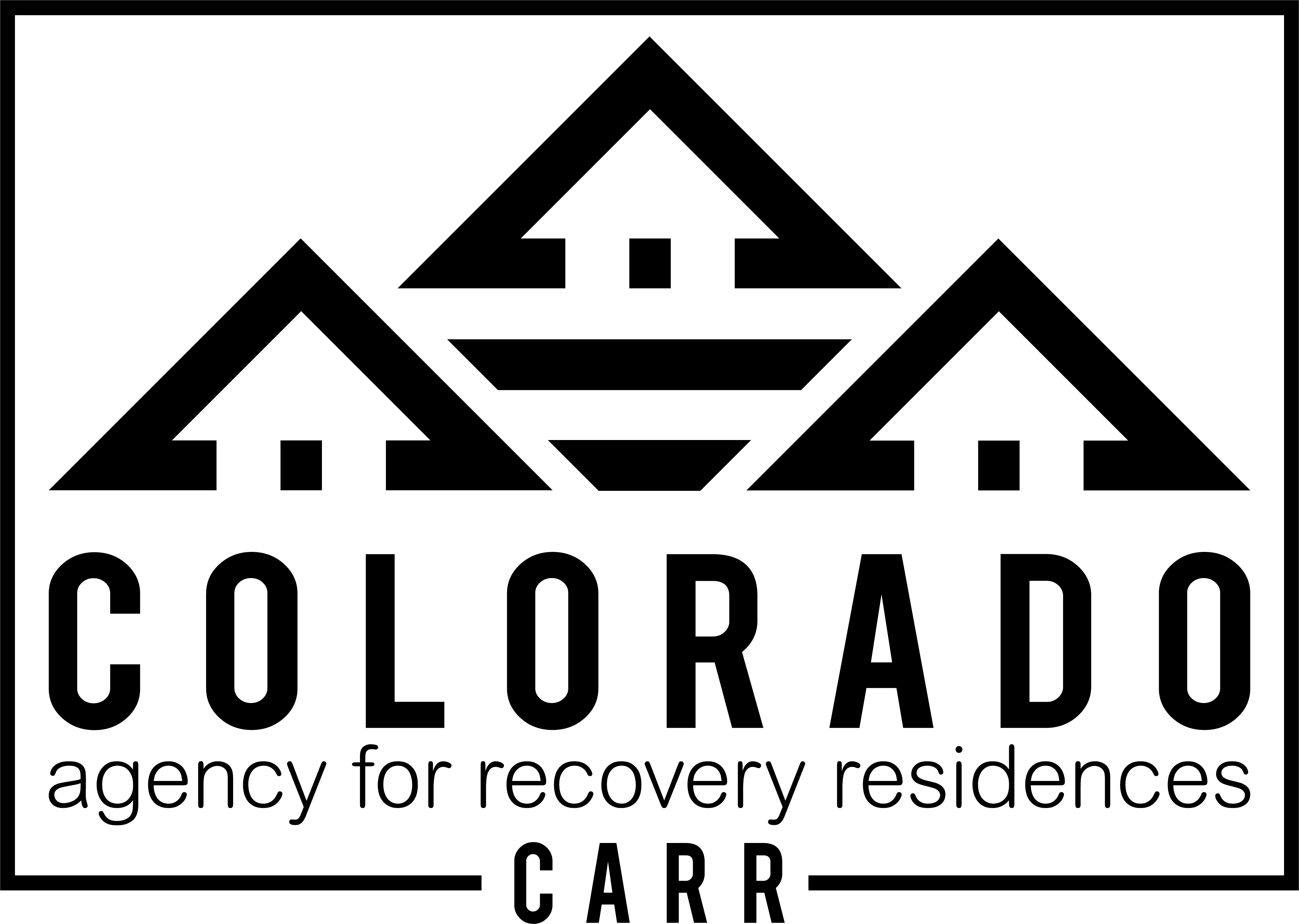Handled Respectfully, Appropriately and Professionally.
Colorado Agency for Recovery Residences
It is the policy of the Colorado Agency for Recovery Residences (CARR.) to ensure Certified Residences and stakeholders grievances are handled respectfully, appropriately, and professionally. The Formal Grievance Procedure should be used to resolve interpersonal conflict between individuals and to report issues with existing CARR policy that a Certified Residence believes should be examined prior to the next scheduled annual policy review meeting.
The Formal Grievance Procedure should not be used for retribution or personal/agency gain.
The Formal Grievance Procedure includes but is not limited to the investigation, validation, and recommendation of the Ethics Committee as to the standing of the Certified Residence and sanctions and/or disqualification of their certification to the CARR Board, when necessary.
Formal Grievance Procedure – confidentiality of proceedings.
All information, notes, reports, transcripts, and any other documentation of any kind that are generated or received during the course of an ethics investigation, including the Ethics Standards Committee (“ESC”) meetings, and appeal hearings, shall be kept confidential by CARR.
The respondent is entitled to a full and complete copy of the following:
Signed Compliant; (Subject of compliant / grievance; Identity of complainant / grievant will remain confidential). All Complaints must be accompanied with contact information and signature by the Complaintive in order for CARR to conduct any investigation or proceedings of the complaint.
Investigative summary; Ethics Standards Committee’s Recommendations; CARR Executive Board Recommendations.
The complainant is entitled to a full and complete copy of the following:
Ethics Committee’s Recommendations; CARR Board Recommendations.
Oversight and Conflict of Interest:
In all cases, the Chairperson of the CARR ESC will direct ethics investigations under the guidelines lined out in the Ethics Standards Committee Charter. If a member of the Ethics Committee is a party in a grievance, currently employed by, or owns and operates or is involved in any way, he or she will be excused from the grievance proceedings. If a member of the CARR Board is a party in a grievance, currently employed by, or owns and operates, or is involved in any way, he or she will be excused from the grievance proceedings. In addition, no CARR Board member will be involved in an audit of their own company, nor in a voting role on any certification action or any other action of their own organization, an or company.
Sanctions
- Possible sanctions for the violation of the CARR Code of Ethics or Standards include but are not limited to:
- Written Reprimand: A Written Reprimand with request for Corrective Action and follow-up review;
- Suspension: Suspension with request for Corrective Action and follow-up review;
- Revocation;
Denial of Application for Certification with CARR.
The Ethics Committee may consider the applicant’s or agency’s past history in regards to ethical sanctions and disciplinary actions when determining the appropriate sanctions for the current ethics case.
A third offense, confirmed by the Ethics Committee, in a two-year period will automatically result in an immediate summary suspension and sanctions shall include a suspension or revocation of Certification.
The Formal Grievance Process
It’s important to follow the grievance or complaint procedures carefully and to document all pertinent facts, dates and information when filing a report or claim.
Step 1: Filing
A Formal Grievance should be filed within 30 days of when the complainant became aware or suspected the violation of ethics or standards. The Formal Grievance should be documented on the CARR Formal Grievance Form, provide contact information and be signed; Verbal and non-signed grievances will not be acted upon.
Step 2: Submission
The CARR Formal Grievance Form should be submitted online at www.carrcolorado.org or to the Executive Director of CARR, or if a perceived conflict exists, to the Chairperson of the CARR Board at chair@carrcolorado.org.
Step 3: Notification of Receipt
Grievant should be notified by email or telephone within 5 business days of the Executive Director’s receipt of the grievance. The Executive Director of CARR forwards a copy of the Grievance to the Chairperson of the CARR Ethics Committee for review and discussion;
Step 4: Investigation
Within 30 days of receipt of the written compliant, the CARR Ethics Committee will complete an objective investigation of the matter and record the findings in writing; An extension of no more than 30 days may be granted for investigations that take longer than the initial 30 day time frame. No member of the Ethics Committee or Executive Member shall intentionally try to stall, prolong, or delay proceedings. The complainant /grievant and / or respondent may be requested to appear separately in front of the Ethics Committee. Written notice of the time and date will be sent to the grievant at least 10 days prior to the hearing.
Step 5: Presentation to the Board
CARR Ethics Committee presents to the CARR Executive Members at the next scheduled meeting. The presentation shall include the compliant / grievance; investigation summary including an objective account of everything that transpired to result in the grievance and as well as anything that have occurred as a result of the grievance, and the recommended action to be taken;
Step 6: Board Decision/Recommendations
CARR Board of Directors will discuss and make a formal recommendation for vote at the next general meeting. A report of the findings, voting results, and corrective actions to be taken will be provided to the grievant via email within 14 business days after the general meeting. The proceedings will be recorded in general meeting minutes to keep official record;

